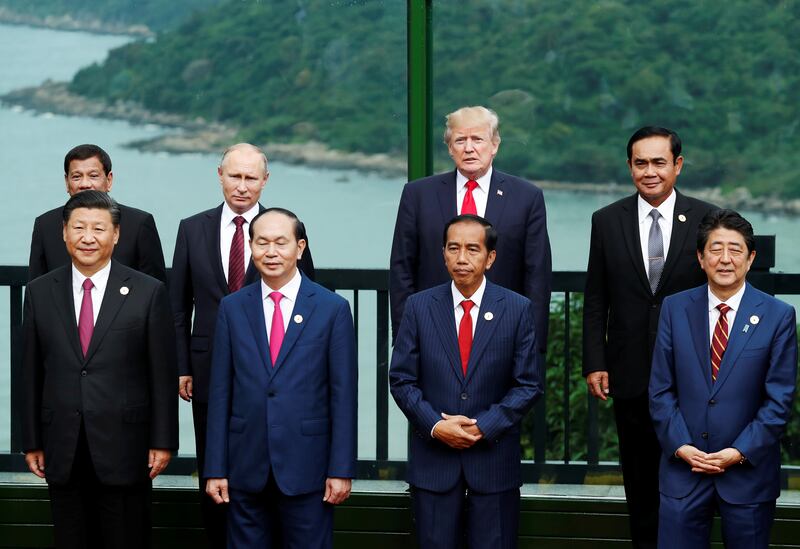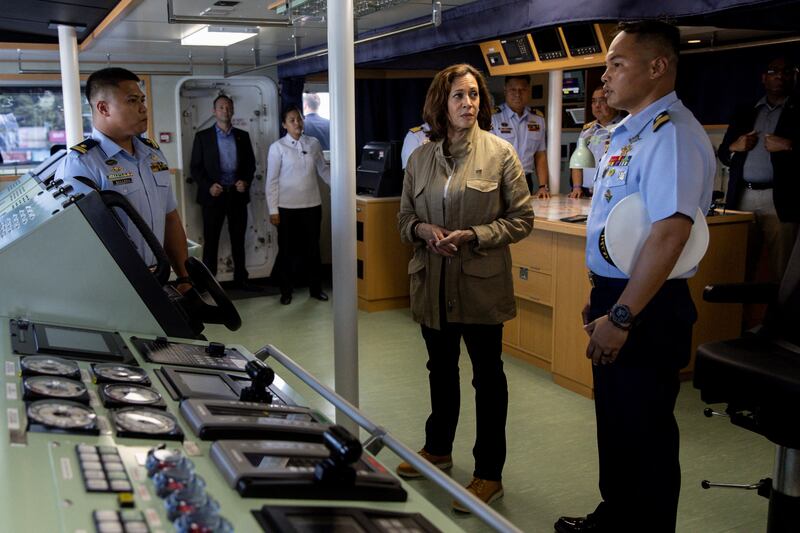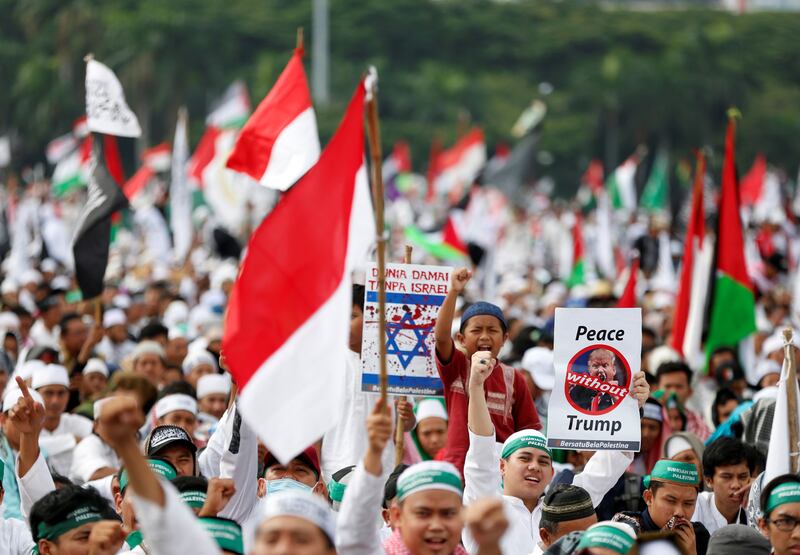Donald Trump’s return to the White House may cause trade to slow down in Southeast Asia and raise regional tensions amid an expected worsening of Washington-Beijing ties, analysts said.
The Philippines stands to lose the most, potentially, if the United States, under the president-elect’s expected inward turn, reduces or questions the current deep bilateral ties as increasingly dangerous Manila-Beijing standoffs play out in the South China Sea, security experts noted.
Southeast Asian countries that claim not to take sides in the superpower rivalry would now need to perform a diplomatic dance to exhibit their neutrality, especially because three of them recently joined BRICS, the economic grouping spearheaded by Washington rivals Beijing and Moscow.
Unlike the current Democratic administration’s more measured approach to mitigating China’s oversized influence in Southeast Asia, a Republican government under Trump may not fancy such a strategy if it sees itself as being slighted, analysts said.

Still, the biggest impact of a second Trump administration on Southeast Asia will be trade-related because the election-winner has made no secret of his economic nationalism, said Ahmad Mohsein Azman, an analyst at the Malaysia office of BowerGroup Asia, a political risk consultancy.
Ahmad forecast “a general slowdown in trade with the U.S.,” with Trump’s return as president.
“A recurring theme from Trump’s political campaign is the emphasis on localizing the U.S. economy through the ‘America First’ platform,” Ahmad told BenarNews.
“This includes the enactment of industry and trade policies to encourage the return of key industries and job opportunities to American soil. New import tariffs would also be introduced.”
Trump said during his campaign to return to the White House that he planned to tax all imports by 10-20%, except goods from China that would get a special 60% tariff – all in an effort to spur U.S. manufacturing.
Over the past months he has called tariffs the “the greatest thing ever invented,” “the most beautiful word in the dictionary,” and his “favorite word.” And he has called himself “Tariff Man.”
U.S. import tariffs will accelerate the shift to a more contested and chaotic world, said Ben Bland, director Asia-Pacific at Chatham House, a London-based international affairs think-tank.
“We know that, in foreign policy, Trump likes trade wars, is not keen on real wars, and has a zero-sum worldview,” Bland said in a short analysis on X (formerly Twitter).
“[T]rump’s deep protectionist instincts, and the possible turbulence in U.S.-China relations, could make life difficult for many states in Asia.”

With Southeast Asia being the site of one of the world’s top geopolitical theaters due to the contested South China Sea, a potentially heated U.S. trade war with China could also be a regional security risk, analysts said.
Syed Hamid Albar, a former Malaysian foreign minister, said the incoming American president would likely “adopt an inward-looking approach,” focused on Washington’s interests to the exclusion of all else.
“Any actions by other countries that he perceives as against U.S. national interests would likely prompt retaliation,” Albar told BenarNews.
An Indonesian international affairs expert, Poltak Partogi Nainggolan, concurred, adding that Washington’s traditionally multilateral approach would weaken under Trump, likely destabilizing key regions.
“In the Asia-Pacific, particularly in the South China Sea, tensions would likely rise due to Trump’s inward-focused policies,” the expert from Indonesia’s National Research and Innovation Agency (BRIN) told BenarNews.
This isolationist approach is what may be of concern to the Philippines, according to Susannah Patton, director of the Southeast Asia Program at The Lowy Institute, an Australian think-tank.
“The Philippines, which has staked the most on the U.S. alliance under the [current Joe] Biden administration, has the most to lose,” Patton said.
“A failure to back up Manila if it is tested further by Beijing in the South China Sea would put great pressure on the alliance,” she said as part of a collection of opinions from the institute’s experts published online.
Beijing claims most of the South China Sea, but its claims overlap those of Brunei, Indonesia, Malaysia, the Philippines and Vietnam, all members of ASEAN, as well as Taiwan.
The countries with overlapping claims often allege Chinese incursions in their exclusive economic zones in the waterway.
Manila ‘nervous'
But of all the claimants, it is Philippine waters and vessels that the Chinese ships allegedly threaten the most.
The United States under Trump would continue to back the Philippines to counter China, said Derek Grossman, a senior defense analyst at Rand Corp., an American think-tank.
If Vice President Kamala Harris had defeated Trump in the polls, then the alliance would have further expanded and deepened to counter China in the South China Sea, Grossman wrote on X.
“If Trump, then probably the same, though more questioning around [the] utility of the alliance, especially continued spending on it. That will make Manila nervous,” he added.
BRICS, Gaza … and Trump’s ‘unpredictability’
Southeast Asian nations may also need to reassess their foreign policy strategy with a new Trump administration, diplomacy experts said.
Albar, the former Malaysian foreign minister, said he believed Trump would be easily offended so it was important to proceed with care.
“Malaysia must exercise caution in its foreign policy approach, especially regarding Israel and Palestine,” he said.
“Trump is not warm or refined.”
Additionally, Malaysia’s involvement with BRICS “will require Anwar to carefully maneuver diplomatically, which could further complicate the country’s position,” Asrul Hadi Abdullah Sani, a partner at a strategic advisory firm ADA Southeast Asia, told BenarNews.

Indonesian analyst Muradi believes that Jakarta should advocate for a “forum of medium-power nations” to address what he said would be rising tensions under another Trump presidency.
“Without such an initiative, we risk being drawn into the U.S.-China rivalry. Our recent entry into BRICS already places us between these superpowers,” he said.
A study of Trump’s personality would help a great deal and Thailand should do that, said Dulyapak Preecharush, a Southeast Asia expert from Thammasat University in Bangkok.
“[T]he team must understand [his] analytical principles and his psychology towards various stances,” Dulyapak told BenarNews.
“Trump’s special characteristic is his unpredictability.”
Muzliza Mustafa, Minderjeet Kaur and Iman Muttaqin Yusof in Kuala Lumpur; Pizaro Gozali Idris in Jakarta; and Nontarat Phaicharoen and Ruj Chuenban in Bangkok contributed to this article.
